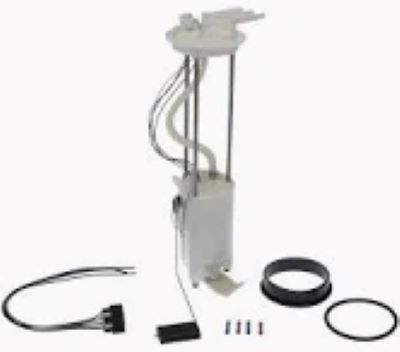Many Fuel Pumps need specific connectors in order to guarantee excellent performance. The latter is necessary to ensure that a Fuel Pump can perform optimally and some of the standard connectors might not deliver both, being either an open termination or lacking compatibility. Connectors required to carry high current without loosening or overheating are a prime example, such as for Fuel Pumps operating at pressures up to 2,000 PSI. Common connectors are not made to endure this kind of environment and may create problems, such as weakened fuel delivery or pump failure. It is a good suggestion to use connectors that are automotive grade recommended by experts, as this ensures the adequate electric and environmental durability needed for Fuel Pumps.
The ability to withstand heat is also a consideration. Fuel Pump Connectors must survive engine bay extremes that may bet evil to 200F Well, a normal plastic connector could warp or breakdown at these temperatures making an inconsistent power supply. Such connectors often use heat-resistant nylon or thermoplastic elastomers that help prevent damage and seal off the pins to maintain strength. In heat-resistant connectors, studies have shown that failure rates can decrease up to 40 percent in high-heat environments, making them a cost-effective path for ensuring fuel system reliability.
For many applications, including pumps mounted in the tank or under the vehicle, fluid ingress waterproofing is an important aspect of connector design. The electrical connection can be broken when moisture and road debris comes in contact with standard connectors, which then leads to corrosion that interrupts the flow of electricity causing also fuel disruptions. These are generally grommets or o-rings made out of rubber that seal the surrounding to waterproof your connector. The lifetime of the connector is longer, resulting in fewer repairs or replacements that may amplify expenses.

Higher flow rate Fuel Pumps found on performance vehicles need a bigger wire so that we have to make it with big pins too. An upgraded Fuel Pump for a turbocharged engine, as an example could demand 10-gauge instead of the common 12-gauge wiring due to more power draw. The high-performance connectors are engineered to accommodate these larger wires, and the necessary continuous current can be kept visually by them without fear of overheating or gobbler power loss -- a lesson in life when you're dealing with forced-induction engines.
There are so many little things that affect fuel use and engine performance, but connector quality is one of them. A faulty Fuel Pump relay may cause the fuel pump to get intermittent power and affects in low or high pressure for changing reason, which is why if you think of this as a potential problem try swapping it with another one that has exactly the same part number. The result, according to some automotive experts is that the engine has to compensate for the inconsistent fuel delivery and as such burns 5-10% more gas. Quality parts: Quality connectors will keep fuel pressure more stable, and this ensures better engine responses as well as much improved economy.
This proper fit between the connector and the Fuel Pump results in reducing vibration and wear on where both parts connect. Data in the industry shows vibration-resistant connectors may increase a Fuel Pump's life by 20%, especially placed under high-performance applications. A secure connection is key to keeping the power flowing and minimizing disconnect during those harsh conditions that a vehicle driven in rough or high-speed terrain will see.
Finding connectors that meet your Fuel Pump requirements will not only improve the reliability of fuel delivery but also reduce possible problems such as power loss and exposure to environmental factors. To learn more about how to keep your Fuel Pump in shape, as well what connectors are right for you and proper Internet connections visit Fuel Pump at which provides knowledgeable specialists who can procure the correct components that align with all OEM regulations.